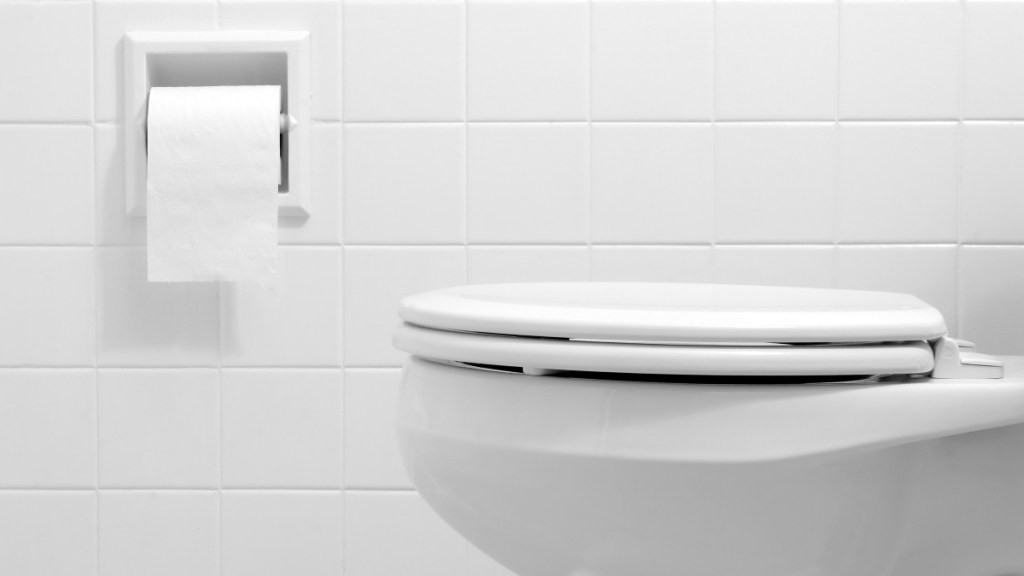How Long Are You Contagious With Norovirus? What to Know About the Highly Contagious GI Bug
Hand sanitizer won't stop the spread, but these 6 strategies can help

If you’ve spent some time reading or watching the news lately, you’ve probably heard about the norovirus outbreak sweeping the nation. Norovirus is one of the most common causes of the stomach flu, triggering nausea, vomiting and diarrhea. After developing any of these symptoms, avoiding contact with others is important. But how long are you contagious with norovirus, and is there any way to stop the spread? We connected with top public health and infectious disease experts to learn the answers.
What is norovirus?
Norovirus is a viral infection that attacks the gastrointestinal tract. “It’s very contagious and easily spread on surfaces and through close person-to-person contact,” explains S. Wesley Long, MD, PhD, Medical Director of Diagnostic Microbiology at Houston Methodist Hospital.
In simple terms, we get sick when we swallow it. Norovirus is “transmitted by the fecal-oral route,” adds Dahlia Philips, MD, an infectious disease physician and Medical Director at MetroPlusHealth.

How norovirus spreads
Norovirus spread happens in several ways, says Jacqueline A. Vernarelli, PhD, a nutritional epidemiologist, public health professional and associate professor at Sacred Heart University. That includes:
- Through direct contact, like sharing food, cups or utensils with an infected person
- Caring for a sick individual
- Touching contaminated surfaces (like toilet handles or light switches), then touching your mouth
- Eating and drinking contaminated foods
Places where many people congregate can further up the risk. “Daycare centers, schools and cruise ships have all been implicated in norovirus outbreaks,” Dr. Long notes. “There is even a CDC-reported case of transmission from one team to another during a football game.”
Norovirus is highly contagious
Why is norovirus so contagious and effective at spreading? Dr. Philips says two factors are primarily to blame. “At least 29 strains of norovirus have been identified,” she says. “And exposure to between 10 and 100 viral particles can make someone sick.” Compare that to the 2,000 to 3,000 viral particles it takes for the flu virus to do the same!
The number of norovirus strains and their ability to spread quickly cause many people to become infected more than once. You might even catch norovirus multiple times in a year. And although you can get sick with the highly contagious virus at any time, norovirus most common during flu season (November to April).
Symptoms of norovirus
Once the norovirus enters your mouth, it makes its way to your gastrointestinal tract. There, it causes inflammation in the stomach and intestines, which can lead to:
- Vomiting
- Nausea
- Diarrhea
- Stomach cramps
Some people also develop a mild fever and body aches, but these side effects are rare compared to gastrointestinal symptoms. (Click through to learn how stress can make diarrhea worse.)

Who’s at risk of catching norovirus?
In short, everyone. And that’s due in part to the bug’s staying power. How long does norovirus live on surfaces? It can survive on things like door knobs, kitchen counters and toilet flush handles for up to two weeks. “If an infected person touches a surface, the next person who touches the same surface may also become infected,” Dr. Vernarelli explains.
Even so, certain groups are more likely to experience severe symptoms. For example, Dr. Philips says that infants, young children and the elderly can easily become dehydrated from the sudden onset of vomiting and diarrhea. Similarly, immunocompromised folks have a greater risk of norovirus infection compared to others.
How long are you contagious with norovirus?
Once the bug enters your body, the norovirus incubation period is relatively short. It takes between 12 and 48 hours to make you sick. While avoiding direct contact with others is your best bet to thwart the virus’s spread, that’s not always possible. So, how long are you contagious with norovirus?
After symptoms begin, Dr. Long says you’re most contagious for two to three days. “However, people can continue to shed and spread infectious virus particles as long as two weeks after they’ve had symptoms,” he adds. Because of this potential for making others sick, it’s good to avoid crowds and isolate for at least 14 days if possible while you’re contagious with norovirus.
Tip: Check out the short video below for how to ease symptoms if you’re under the weather with norovirus.
How to stop norovirus from spreading
“Wash your hands!” Dr. Vernarelli says. “This is the most effective strategy [to stop norovirus from spreading]. Wash your hands before eating, after going to the bathroom and after coming home for the day.” Scrub for at least 20 seconds each time with soap and warm water. It sounds basic, but our experts agree it really is the most effective way to stop the spread of the highly contagious norovirus.
Note: Alcohol-based hand sanitizer doesn’t kill norovirus like it does COVID-19 and the flu virus, so it isn’t a preventative option.
How to reduce your risk of catching norovirus
Now that you know how to stop spreading norovirus to others, you’re probably wondering how to avoid catching the contagious bug in the first place. Our experts’ top tips:
1. Close the toilet lid
During sick season (November-April), avoid shared restrooms if possible. Why? “When someone flushes a toilet that doesn’t have a lid, they’re sending particles into the air and onto the surrounding surfaces like other stalls, sinks and door knobs,” says Dr. Vernarelli. “If another person uses the bathroom [after], they can easily become infected.”
Sometimes, public bathrooms are your only option. If that’s the case, avoid the first stall as it’s often the most used. You can also try holding your breath after flushing the toilet and exiting the stall as quickly as possible to curb your risk of inhaling virus particles.
At home, Dr. Vernarelli encourages everyone to “close the lid of the toilet before flushing.” If you or someone in your family catches norovirus, this simple step can protect bathroom surfaces. After all, “you don’t want whatever was in the toilet to end up on your toothbrush that’s sitting on a holder at the sink.” (Click through to learn how often you should replace your toothbrush.)

2. Keep high-contact surfaces clean
Surfaces like door knobs, kitchen counters and light switches are prime areas for norovirus particles to collect. To keep them clean, Dr. Philips recommends using diluted bleach.
“Per the CDC, the recommended concentration of chlorine bleach solution for disinfection is about 5 to 25 Tbs. of household bleach [5% to 8%] per gallon of water,” Dr. Philips says. Wear disposable rubber gloves when cleaning and leave the bleach solution on the treated surface for at least five minutes before wiping it up.
Prefer something ready-made? Dr. Philips says an EPA-registered disinfecting product is just as effective. One to try: Clorox Healthcare Bleach Germicidal Wipes.
3. Wash soiled fabrics ASAP
Norovirus often causes vomiting and severe diarrhea. When caring for someone who’s sick with the virus, ensure linens, towels and clothing stay clean. “Handle items that are soiled with disposable gloves,” says Dr. Philips. “Wash them with detergent and hot water at the maximum available cycle length, then machine dry them at the highest heat setting.”

4. Keep your hands to yourself
A study in the American Journal of Infection Control found that people touch their faces an average of 23 times an hour. Things like nail-biting and skin-picking might seem harmless, but they make it much easier for viral particles to enter your mouth, eyes and nose. Try to avoid touching your face whenever possible. But if you have an itch and can’t refrain, wash your hands for at least 20 seconds first with soap and warm water.
5. Prep like a chef
Restaurants adhere to strict sanitization standards, and implementing similar practices at home can reduce your risk of norovirus. Dr. Philips’ advice: Wash fruits and vegetables well before eating, cook oysters and other shellfish thoroughly to an internal temperature of at least 145°F and routinely clean and sanitize your kitchen utensils, counters and surfaces.

6. Slip on a mask in crowded spaces
Most norovirus infections are caused by direct contact, but Dr. Vernarelli says the virus can also “be spread through particles exhaled by a sick individual.” As a result, wearing a well-fitting N95 or KN95 mask can add an extra layer of protection.
It’s a good idea to wear a mask in crowded spaces, but it can also be beneficial if you’re caring for someone who is sick with norovirus. Similarly, Dr. Vernarelli recommends “wearing gloves when cleaning up contaminated surfaces and when you’re in close contact with them.”
Is there a norovirus vaccine?
Currently, there’s no norovirus vaccine. But that could change very soon. Boston-based biopharmaceutical company HilleVax plans to launch a Phase 1 clinical trial for its norovirus vaccine candidate later this year.
But until a vaccine is available, your best bet is to practice good hand hygiene. “Frequent handwashing is the best way to prevent [norovirus] transmission,” Dr. Long says. “Especially after going to the bathroom and before preparing food.”
For more ways to stay healthy during sick season:
Mullein Tea Is a Little-Known Brew That May Be the Best Remedy for Colds, Flu & More
Garlic and Honey Is the Savory-Sweet Duo That Calms a Sore Throat + Speeds Cold Recovery
How to Stop a Cold in Its Tracks: MDs Share Their Top Tips So You Can Feel Better Fast














